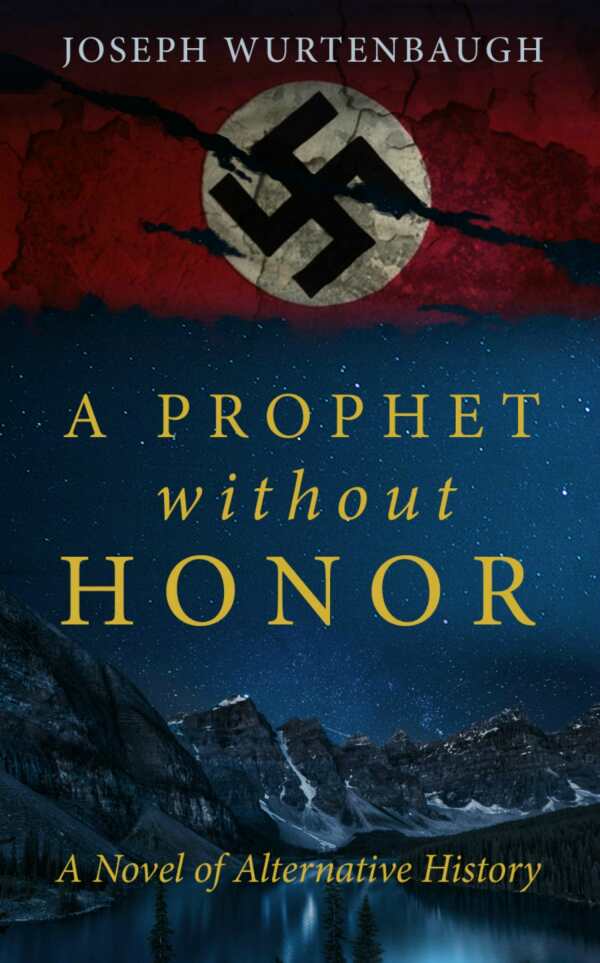A Prophet without Honor
A Novel of Alternative History
A Prophet without Honor takes an approach to history that is both inventive and meticulous.
Joseph Wurtenbaugh’s A Prophet without Honor: A Novel of Alternative History depicts a world in which the rise of Adolf Hitler in the 1930s took a starkly different course. Thanks to the intervention of its protagonist, the century is shaped along dramatically different lines.
At the center of the novel’s intrigue is Karl von Haydenreich, a German officer who, prior to the outbreak of World War II, warns Dwight Eisenhower of an early German offensive. This forewarning changes the course of history from the path we are abundantly familiar with.
The novel is epistolary in form, using faux historical documents. These documents consist of retrospective chronicles, contemporary letters, and diaries written by the novel’s primary characters. They are presented as if they are real, replete with salutations and other contextual markers.
Just as intriguing is the character of Haydenreich, a complicated and realistic figure. His total portrayal is cobbled together through accounts of him that come from many angles—from family members, other officers, and his own diary entries. This serves only to make him come across as more realistic, and it is consistent with the approach that Wurtenbaugh takes to the material, writing as if he were a historian piecing together what really happened.
That historian’s approach is equally illuminating when it comes to Germany in the 1930s. Much of the novel takes place well within the real historical timeline, and Wurtenbaugh is careful to render a realistic portrayal of that time and place.
This conceit can also be a barrier to entry. The multitude of voices telling the story can at times produce a kind of nostalgia for conventional narrative structure.
Yet the many voices heard throughout the novel are orchestrated in a way that offers a multifaceted view of a complicated era. It is hard to imagine this novel taking any other form and still grappling as it does with the moral atmosphere its protagonist finds himself in, with rampant anti-Semitism permeating the nation he inhabits, among other things.
The sheer intrigue of the narrative wins out. There is a great deal of satisfaction to be found in Wurtenbaugh’s resurrection of certain key players in World War II; historical figures who are rendered as characters include Joseph Goebbels and Heinrich Himmler. Additional appearances are made by unexpected participants like children’s book author A. A. Milne, who makes his voice heard as something of an antiwar activist. Throughout, the novel has the feel of a documentary record, assembled by a careful historian.
A Prophet without Honor takes an approach to history that is both inventive and meticulous. It is an ambitious novel that posits a dramatically altered course of history.
Reviewed by
Robert Foreman
Disclosure: This article is not an endorsement, but a review. The publisher of this book provided free copies of the book and paid a small fee to have their book reviewed by a professional reviewer. Foreword Reviews and Clarion Reviews make no guarantee that the publisher will receive a positive review. Foreword Magazine, Inc. is disclosing this in accordance with the Federal Trade Commission’s 16 CFR, Part 255.

